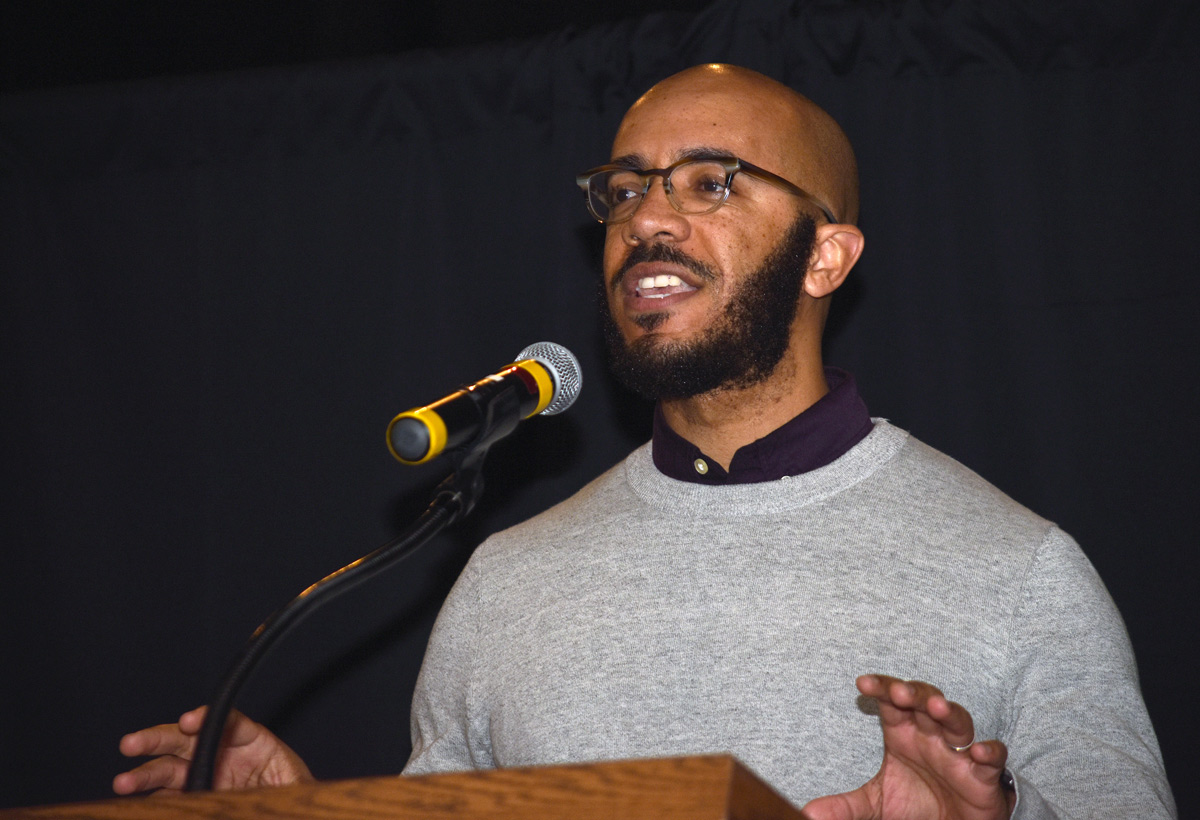Change was the topic of discussion Monday night in Fulton Chapel when Clint Smith, a national poetry slam champion, teacher and Ph.D. candidate at Harvard University, gave the Black History Month Keynote Address.
Smith talked about the United States’ long history of slavery and how it took 250 years of abolitionism to bring about the change that ultimately brought the end of it.
“I’ve been taught how perfect my country was, but nobody ever told me about the pages torn out of my textbook,” Smith said.

He said the were abolitionists from the first day slaves were brought into the country in 1619.
“There were people who recognized that this was fundamentally counter to the notions of justice and liberty that we established,” he said.
Smith said that though a majority of abolitionists died before they could see the end of slavery in the United States, that does not mean that their work went to waste.
“While they didn’t see the fruits of their labors, what it means is that they set up an opportunity for activists, one day to take advantage of a moment,” Smith said.
Shawnboda Mead, director of the Center for Inclusion and Cross Cultural Engagement, said that she was happy with the message the Smith brought forward.
“Our goal with a speaker during Black History Month or during any of our keynote addresses is to have a speaker that students, faculty and staff can connect with, resonate with, who challenges maybe some of the ideas … but also make us think about more of the nuances within our own communities and our campus,” Mead said.
Nekkita Beans, president of the Black Student Union, said she loved Smith’s speech because it was extremely relatable.

“He didn’t come here with his flowery language,” Beans said. “He didn’t come here pointing fingers, just yelling and angry. He delivered his message in a way that was able to touch everybody in that room.”
Senior business major Kenrick Wright said Smith’s speech inspired him.
“Like he said, the job is not done and we might not see the end, but as long as we contribute and keep it going, that’s the most important part,” Wright said. “There is always a beginning and end, but the most important part is maintaining it.”
Oxford local Eunice Benton attended the keynote address with her husband.
“It was a really powerful and a unique presentation that was not a lecture,” Benton said. “He was engaging his whole audience. That was very important, and he didn’t pull any punches or miss any words.”
Smith’s latest work “Counting Descent” won the 2017 Literary Award for Best Poetry Book
from the Black Caucus of the American Library Association and was a finalist for an NAACP Image Award.
He was named the Christine D. Sarbanes Teacher of the Year in 2013 by the Maryland Humanities Council, and his writing has appeared in The New Yorker, The Atlantic and some other major publications.











